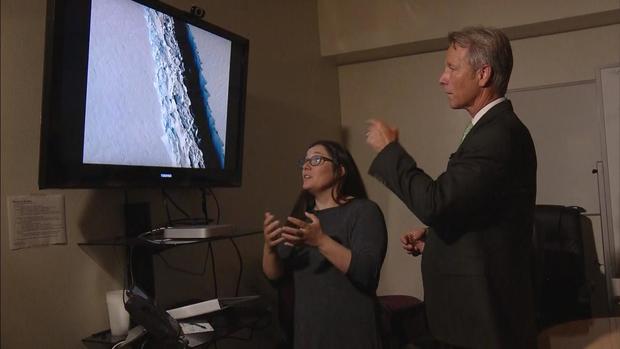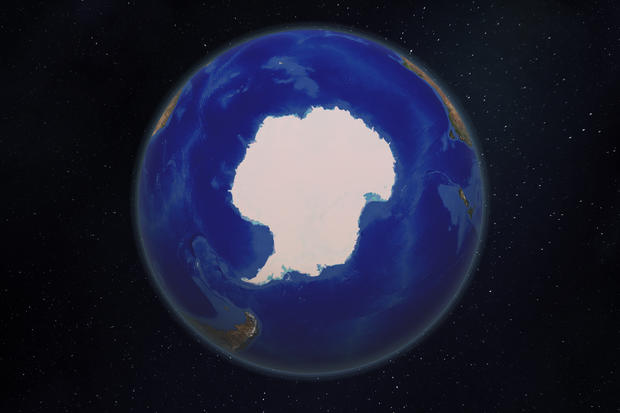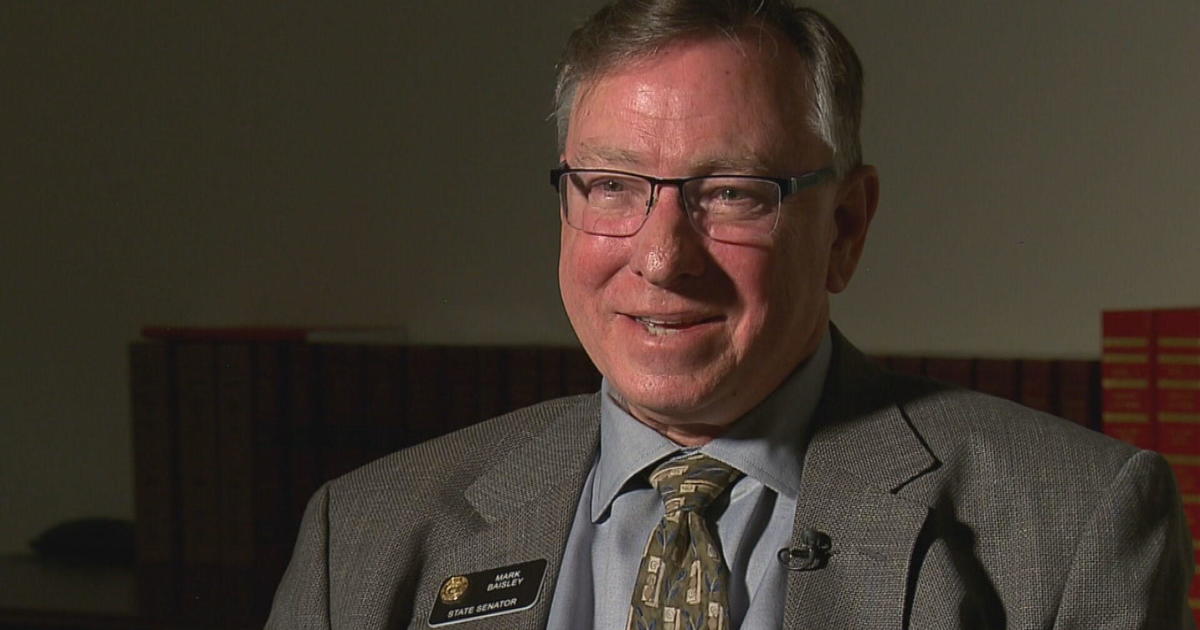Colorado Scientists Keep Close Eye On Iceberg That Broke Free
By Tom Mustin
BOULDER, Colo. (CBS4) - A giant iceberg is causing shockwaves in Boulder.
"I'll probably die before it affects me, but for the earth I think it's a little worrisome," said Boulder resident Joe Marple.
On Wednesday, a 1 trillion ton mass of ice broke off from the Larsen C ice shelf in Antarctica. It is one of the largest icebergs ever recorded.
Scientists at the National Snow and Ice Data Center at the University of Colorado are working with NASA to track its progress.
"We really want to monitor what's going on," scientist Lora Koening told CBS4's Tom Mustin. She says the iceberg is a natural event and global warming is probably not to blame, but warmer temperatures in the area have caused two previous icebergs over the past 20 years. The warmer temperatures cause the ice to crack. Koenig says like an extra ice cube being added to an already full glass of water, there's the potential for problems.
"Since the early 2000s we're losing ice from Antarctica, so that is causing sea levels to rise. Yes, that is a concern," she said.
Koening says scientists have been tracking the giant crack for more than a decade. One incident is not a cause for alarm, but what happens next is the key. Several icebergs over the next few years could be an issue.
"What happens next is very important. The alarming point comes when you see it happen again and again and again. We already see the sea level is rising in the U.S."
But even with the sea and air warming to dangerous levels, Koenig is confident, at least for now, that Coloradans shouldn't be worried.
"So we could have beachfront property in Colorado at some point?" asked Mustin.
"No, we will not have beachfront property in Colorado," said Koenig.
More icebergs could be on the horizon. In the past 60 years, temperatures in Antarctica have continued to rise. This makes scientists increasingly concerned more melting could occur.
Tom Mustin is CBS4's Weekend Anchor. He has been with CBS4 since 2002, and is always looking for great story ideas. Connect with Tom on Facebook or follow him on Twitter @TomCBS4.





